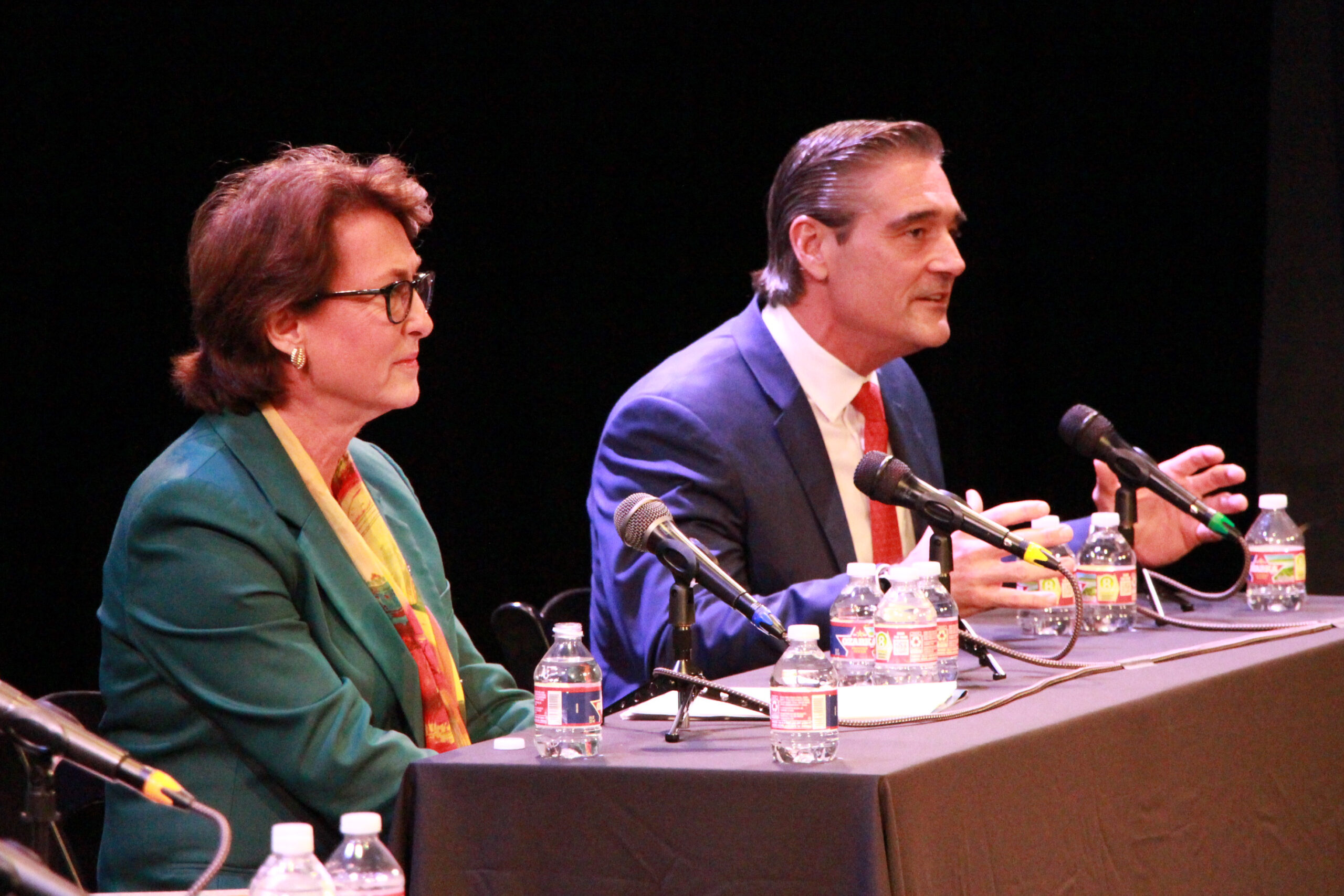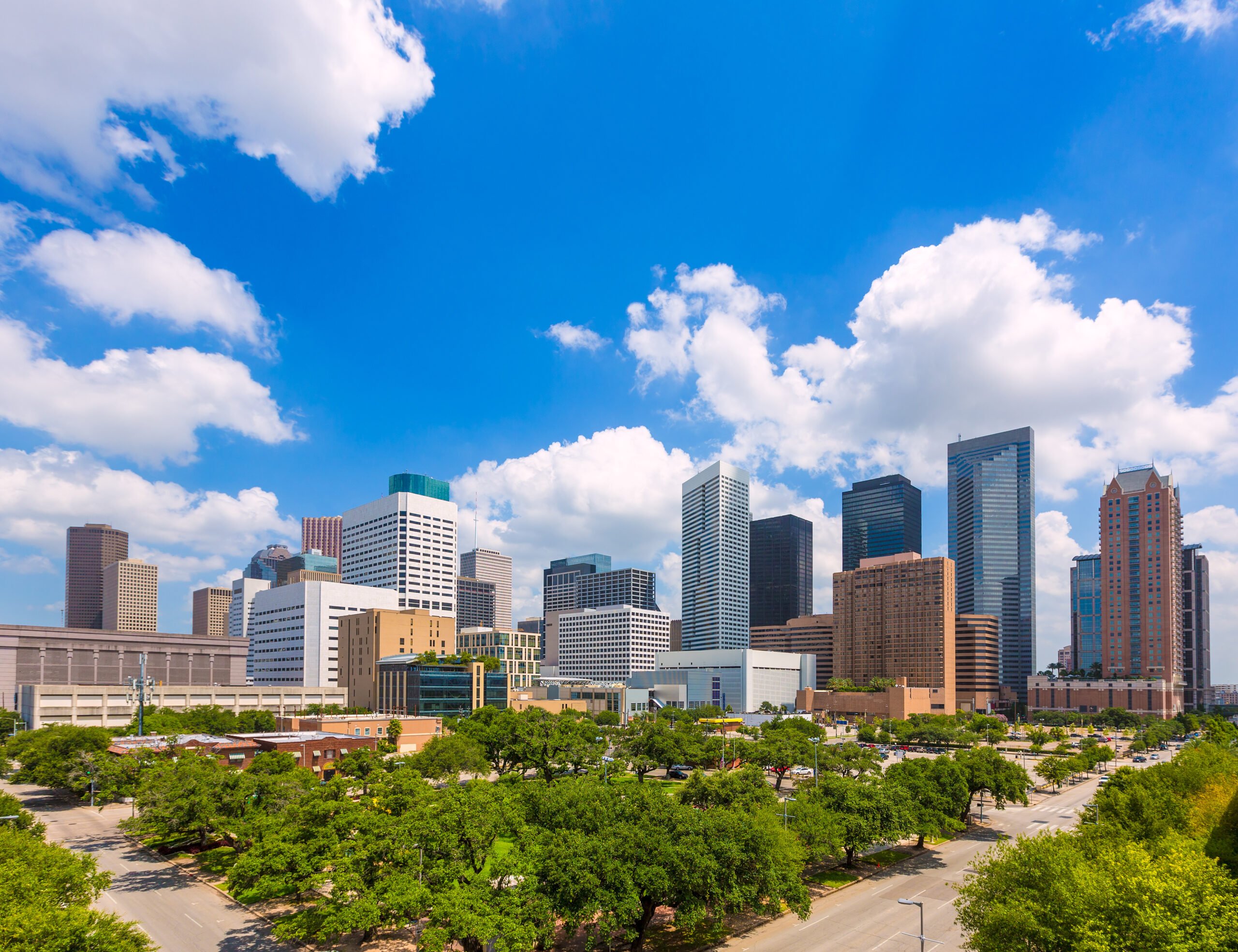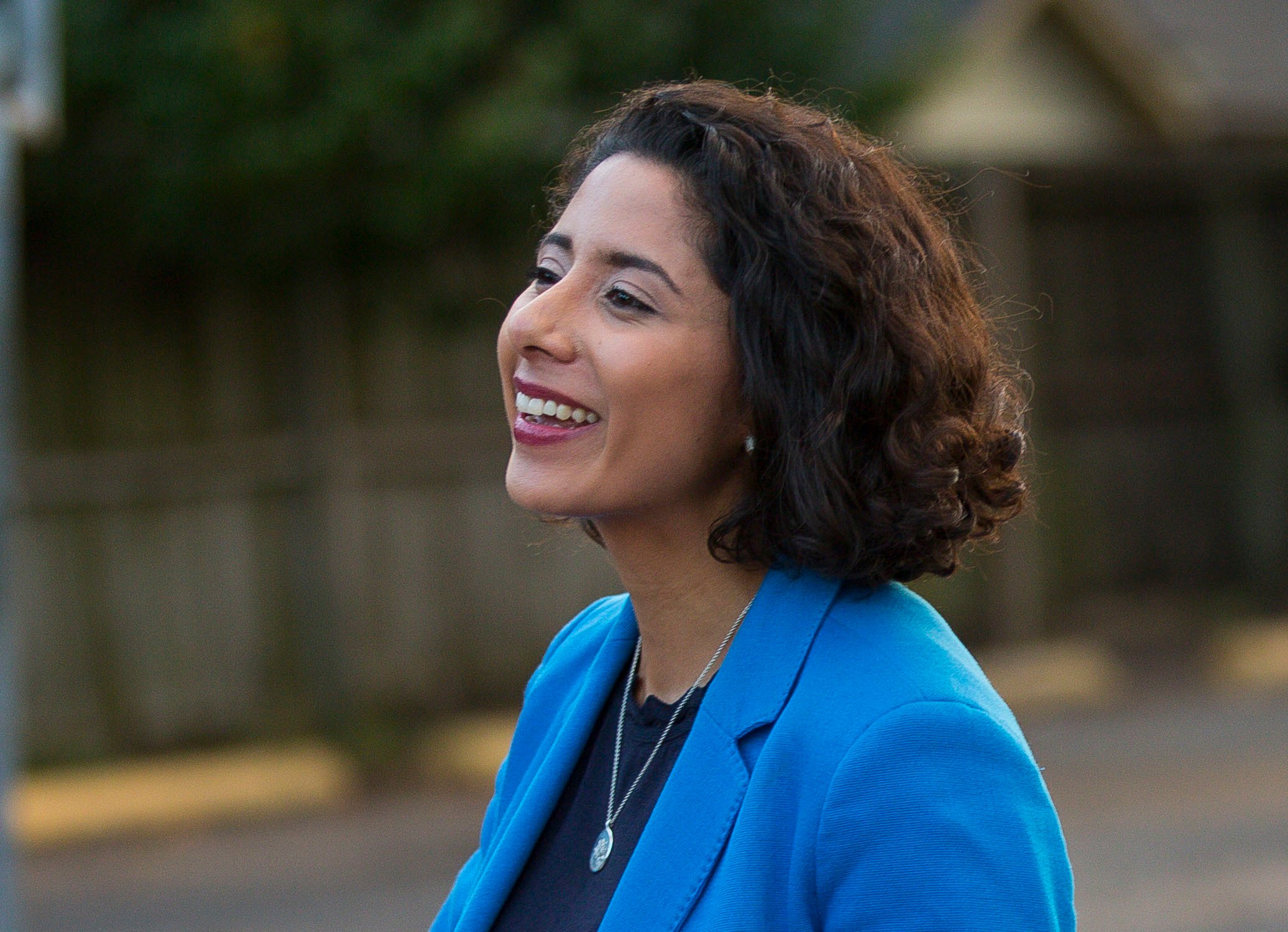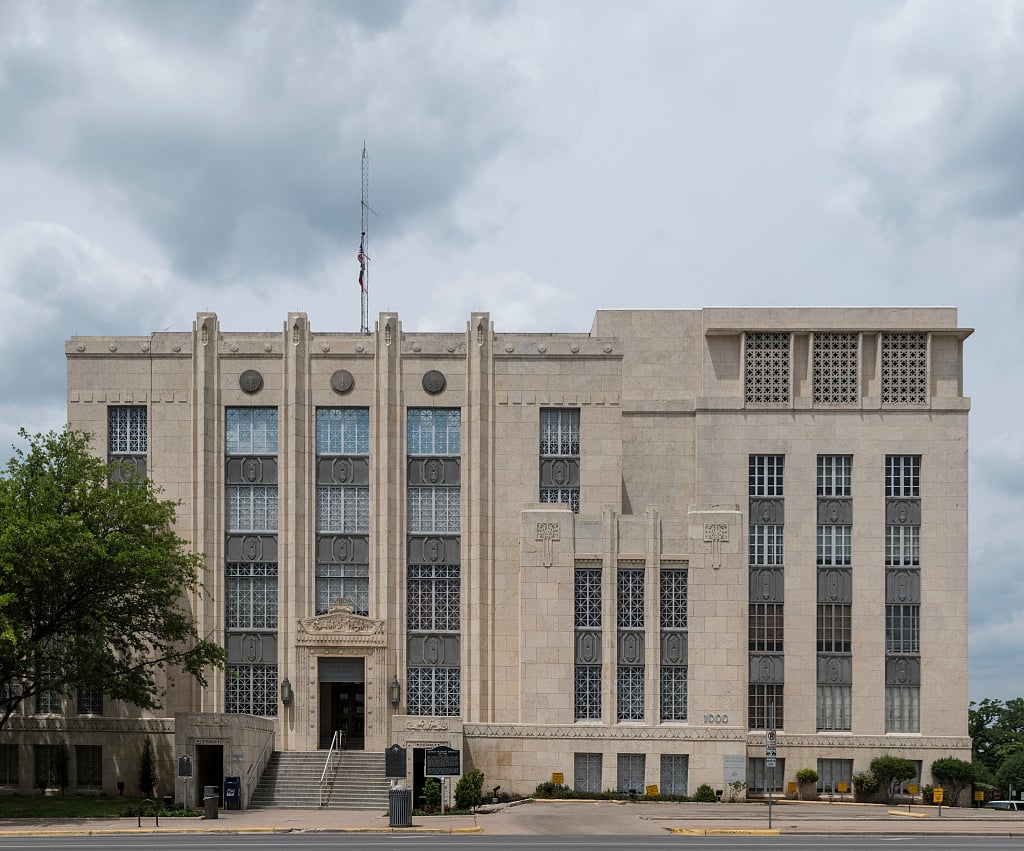
Why Doesn’t Texas’ Most Liberal County Have a Public Defender?
Judges and an aggrieved defense bar are derailing talks to build a public defender’s office in Travis County.
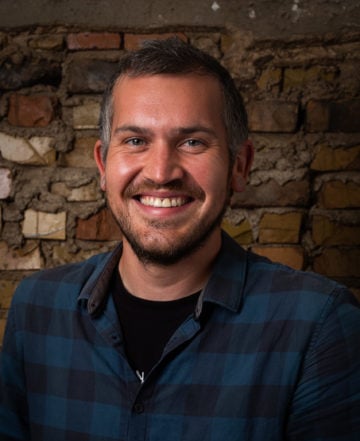
Austin is the largest city in the country without a public defender’s office to help represent poor people accused of crimes. In Texas, the only other big city without one is Fort Worth. Despite Austin’s reputation as a leader on progressive policies, advocates for criminal justice reform have struggled to overcome fierce opposition from the entrenched local criminal justice system.
Now, a plan to create a new Travis County public defender’s office is in jeopardy. The private defense bar and elected judges have threatened to kill the $15 million proposal ahead of a March 11 grant deadline, possibly forcing the county to go back to the drawing board.
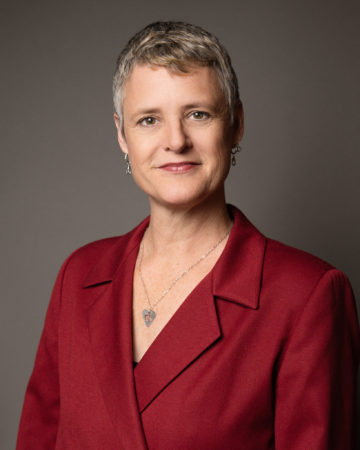
While private defense lawyers insist the process is stalled for now, officials and supporters of a public defender’s office are still trying to salvage the proposal. Travis County Judge Sarah Eckhardt, who appointed the indigent defense working group that drafted the proposal, told me that the county remains committed to reform despite the impasse. “Study after study across the nation shows that a quality, appropriately resourced public defender’s office raises the bar and improves outcomes for low-income defendants,” she said. “The question is now how we should build it up and fold it into our current system.”
Supporters of a public defender argue that the current system, where private lawyers are assigned poor defendants, usually for a flat per-case fee, perpetuates a plea-mill system of justice. Despite recent reforms to Travis County’s appointment system, people who can’t afford lawyers stay in jail longer and face harsher sentences than those who can hire their own attorney. According to a recent Texas Tribune investigation, the 10 private attorneys handling the most cases under Austin’s current system averaged 533 cases in 2017.
Travis County’s 15 elected criminal court judges, who must ultimately approve any changes for indigent defense, have been dismissive of the working group from the start. In November, the county’s senior elected judge, Brenda Kennedy, wrote to Eckhardt that she and the rest of the judges refused to “get involved in a publicly recorded and perhaps politically sensitive process,” according to emails the Observer obtained discussing the process. “[N]o elected official would want to alienate or subject themselves to any negative consequences based on their honest assessment, recommendations, and views.”
Indeed, the working group’s meetings have been tense. In a January meeting, people were invited to share their experiences navigating Travis County’s criminal justice system while poor. Many recounted feeling like defense lawyers appointed to their cases simply shuffled them through a plea-mill system like cattle. Activists from Grassroots Leadership, some of whom sat on the working group, collected letters from people locked up in the county jail in Del Valle, on the outskirts of town. Some of the letters named and criticized private defense lawyers appointed to indigent cases.
“I can’t help but feel like some people are more upset with how their income will be affected than the state of indigent defense in Travis County.”
The aggrieved local defense bar walked away from the table not long afterward. “We sent you busy, experienced practitioners prepared to have serious discussions about proper caseloads, staffing and culture,” the Austin Criminal Defense Lawyers Association wrote in a letter last month pulling out of the public defender talks. Krista Chacona, a defense attorney and member of the working group, argued that activists had unfairly vilified the local defense bar. In a resignation letter, Chacona wrote, “There is no argument that there are attorneys, retained and appointed, that fail to do their job well — just like every other profession on the planet. I had a dentist cause nerve damage while removing my wisdom teeth, but I don’t roundly condemn all dentists and refuse to see other dentists.”
A subsequent letter by Kennedy, announcing Travis County’s elected judges opposed the working group’s plan, could be the final nail in the coffin, at least for now. Kennedy argued poor people would be better served by reforming and throwing more resources at the county’s current indigent defense system, where some private lawyers appointed to represent poor defendants still pull six-figure paychecks while shouldering crushing caseloads. In an interview last week, Kennedy told me that any initial planning for a public defender’s office should be done in private between lawyers and officials — at least until the parties can agree on a plan to shop to the community.
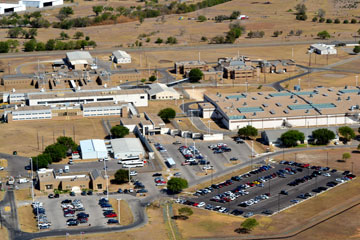
“I’m not saying community input isn’t a valuable part of the process,” Kennedy told me. “I’m just saying this recent group was more of a political gathering than a real development and implementation process.”
Rebecca Sanchez, a working group member representing Grassroots Leadership, suggested another reason for opposition from the private defense bar, which would ultimately be appointed cases under the plan: “I can’t help but feel like some people are more upset with how their income will be affected than the state of indigent defense in Travis County.”
Supporters of the working group’s plan acknowledge that public defenders aren’t a panacea — in part because indigent defense in general is underfunded — but also point to research that continues to show they lead to better outcomes for poor people accused of crimes. Criminal justice reformers in recent years have also begun to focus on building up public defender’s offices as institutional counterweights to harsh, unfair practices of mass incarceration. In Harris County, for instance, officials fighting a landmark bail lawsuit by civil rights groups recently tried, but failed, to oust the county’s chief public defender, essentially as punishment for helping criminal justice reformers gather public information.
Amanda Woog is executive director of the Texas Fair Defense Project and chaired Travis County’s indigent defense working group. She insists public defenders can change the culture of a courthouse. “I’ve heard too many excuses from appointed defense attorneys for why poor people get worse outcomes in our community, which place the blame on the client — they don’t have a job, they’re sitting in jail, they have a criminal record,” Woog said. “A quality public defender’s office can create a culture where attorneys understand structural racism and how systems punish the poor, and they fight for their clients to have a fair shot amid the structures that were created to keep them down.”
Despite the opposition from the Austin Criminal Defense Lawyers Association, some members think a public defender’s office is long overdue in Travis County. “We’re getting out-liberaled by Harris and Dallas County on this,” said Paul Quinzi, a lawyer who sat on the working group on behalf of the private defense bar until it pulled out of the process. “We like to say we’re a progressive place, but unfortunately not enough people have been seriously worried about indigent defense here.”
